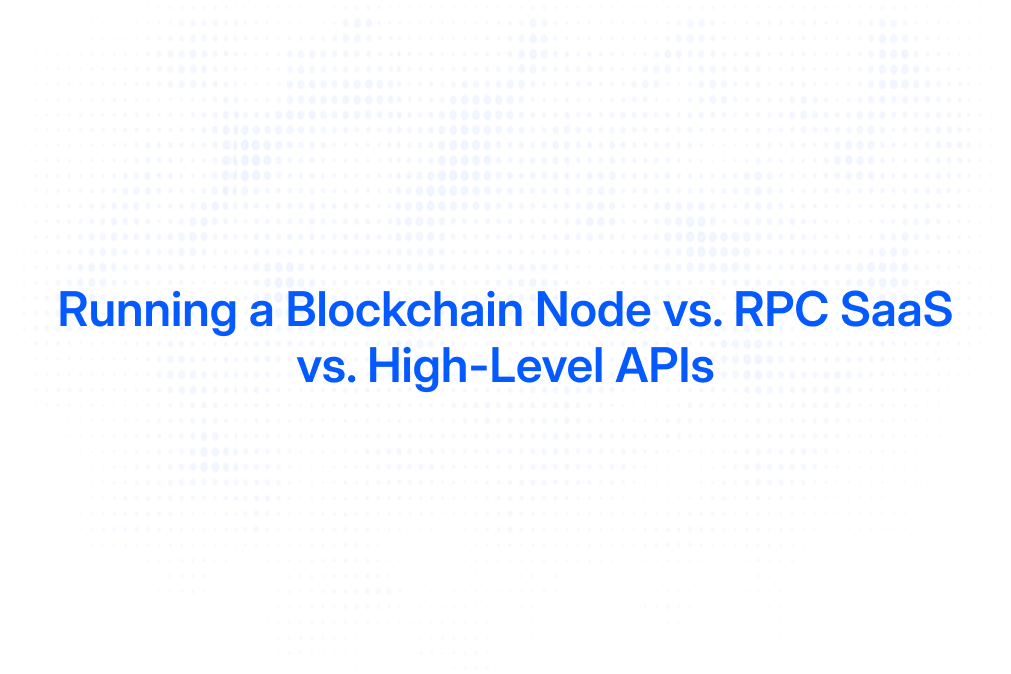Comparing MCP with Other Cloud Networking Solutions
As blockchain applications continue to grow in complexity and scale, the underlying infrastructure supporting them must evolve to meet demands for reliability, speed, and cost-effectiveness. Among the emerging technologies reshaping blockchain infrastructure is Google’s Multi-Cloud Proxy (MCP), a solution designed to optimize cloud networking by leveraging multi-cloud environments. This article delves into how MCP compares with other cloud networking solutions, highlighting its unique advantages, practical applications, and why it is becoming a preferred choice for Web3 developers and enterprises.
Understanding Google MCP and Its Role in Blockchain Infrastructure
Google MCP, or Multi-Cloud Proxy, is a cloud networking solution that facilitates seamless connectivity and routing across multiple cloud providers. Unlike traditional single-cloud setups, MCP enables applications to leverage resources from various cloud platforms simultaneously, improving redundancy, reducing latency, and enhancing overall reliability.
In the context of blockchain, where decentralized applications (dApps) and nodes require constant, reliable access to Remote Procedure Call (RPC) endpoints, MCP plays a critical role. It acts as an intelligent proxy layer that orchestrates API calls across multiple RPC providers, ensuring that blockchain apps maintain uptime and performance even if one provider experiences downtime or latency spikes.
This multi-cloud approach contrasts with conventional cloud networking solutions that typically rely on a single cloud provider’s infrastructure, which can introduce risks related to vendor lock-in, outages, and regional limitations.
Key Differences Between MCP and Traditional Cloud Networking Solutions
1. Multi-Cloud vs Single-Cloud Architecture
Traditional cloud networking solutions often depend on a single provider such as AWS, Azure, or Google Cloud Platform. While these platforms offer robust services, relying on one provider can create single points of failure and limit geographic flexibility. MCP’s multi-cloud architecture allows blockchain applications to distribute their network traffic across several cloud providers simultaneously.
This distribution enhances redundancy — if one cloud region or provider encounters an outage, MCP can automatically reroute traffic to another provider without interrupting service. This capability is particularly crucial for blockchain applications where RPC downtime can lead to transaction delays, loss of user trust, and financial costs.
2. Enhanced Reliability Through Intelligent Routing
MCP incorporates intelligent routing mechanisms that dynamically select the best-performing RPC endpoints based on latency, availability, and load. This contrasts with static routing in many traditional cloud setups, where traffic is often bound to predefined routes that may not adapt in real time to network conditions.
By continuously monitoring endpoint health and performance, MCP ensures that API calls are directed to the most reliable and fastest RPC providers at any given moment. This automatic failover and load balancing significantly reduce the risk of downtime and optimize user experience.
3. Cost Optimization and Efficiency
Another advantage of MCP lies in its ability to optimize costs. Multi-cloud strategies allow organizations to leverage competitive pricing and avoid overdependence on a single provider’s pricing model. MCP’s routing algorithms can prioritize cheaper or more cost-effective RPC endpoints without compromising performance, helping startups and enterprises reduce RPC infrastructure expenses by up to 40%, according to recent case studies.
In contrast, traditional cloud networking solutions may lock users into fixed pricing tiers or incur additional costs for cross-region or inter-cloud traffic, limiting cost flexibility.
Practical Benefits of MCP for Web3 and Blockchain Applications
Scaling APIs with Multi-Cloud Integration
Blockchain applications often require scaling to millions of API calls per day. MCP facilitates this by orchestrating API traffic across multiple cloud providers, preventing bottlenecks and ensuring consistent throughput. This multi-cloud orchestration is vital for dApps, decentralized finance (DeFi) platforms, and NFT marketplaces that demand high availability and responsiveness.
Moreover, MCP’s integration capabilities allow developers to combine various RPC providers into a unified endpoint, simplifying application architecture and reducing development overhead.
Reducing Latency with Multi-Region Routing
Latency is a critical factor in blockchain performance, especially for real-time applications. MCP supports multi-region RPC routing, which routes requests to the geographically closest or fastest RPC endpoint. This reduces round-trip times and improves transaction confirmation speeds.
By contrast, many traditional cloud networking solutions may rely on a limited set of regions or lack the dynamic routing intelligence to optimize for latency at scale.
Mitigating Risks of Single Provider Dependence
Single-provider dependence poses significant risks, including unexpected outages, throttling, or changes in service terms. MCP’s multi-provider approach mitigates these risks by distributing traffic and avoiding vendor lock-in. This resilience is essential for maintaining uninterrupted blockchain operations and protecting against costly RPC downtime.
Comparing MCP with Other Cloud Networking Alternatives
Google Cloud RPC vs MCP
Google Cloud RPC services provide reliable RPC endpoints within Google’s ecosystem, offering strong performance and security. However, these services are limited to Google’s infrastructure and regions. MCP extends beyond this by enabling multi-cloud access, combining Google Cloud with other providers like AWS and Azure.
This broader scope allows MCP to deliver superior redundancy and flexibility. While Google Cloud RPC is ideal for projects fully committed to Google’s platform, MCP offers a future-proof solution for applications seeking multi-cloud resilience and cost optimization.
Traditional Load Balancers vs MCP
Load balancers distribute network traffic across servers or endpoints to improve availability and performance. However, traditional load balancers are often confined to a single cloud environment and lack the advanced routing intelligence tailored for blockchain RPC calls.
MCP’s design specifically addresses the unique challenges of blockchain infrastructure, such as handling multiple RPC providers, dynamic failover, and latency-sensitive routing. This specialization makes MCP a more effective choice for Web3 applications compared to generic load balancing solutions.
API Aggregators vs MCP
API aggregators consolidate multiple API endpoints into a single interface, simplifying development. While MCP shares similarities with aggregators, it goes further by incorporating multi-cloud proxying, real-time routing decisions, and cost optimization strategies.
This means MCP not only aggregates but also intelligently manages traffic across diverse cloud environments, providing enhanced reliability and scalability that traditional API aggregators may not offer.
Future Outlook: Why MCP is Poised to Lead Blockchain Infrastructure
The evolution of blockchain infrastructure is moving towards more distributed, resilient, and cost-efficient models. MCP embodies this trend by enabling multi-cloud RPC routing, combining the strengths of various cloud providers while mitigating their individual weaknesses.
As Web3 projects scale and demand higher uptime, lower latency, and smarter cost management, MCP’s capabilities align perfectly with these needs. Its integration with Google’s cloud ecosystem ensures robust security and compliance, while its multi-cloud flexibility future-proofs blockchain applications against infrastructure disruptions.
Furthermore, MCP’s role in API orchestration and multi-region routing sets a new standard for how decentralized applications can achieve seamless global performance. Developers looking to optimize their blockchain infrastructure should consider MCP as a strategic component of their architecture.
Conclusion
Google’s Multi-Cloud Proxy (MCP) represents a significant advancement in cloud networking for blockchain and Web3 applications. By leveraging multi-cloud environments, intelligent routing, and cost optimization, MCP addresses many limitations of traditional single-cloud solutions and generic load balancers.
For blockchain developers and enterprises aiming to reduce RPC downtime, improve latency, and manage infrastructure costs effectively, MCP offers a compelling alternative that combines reliability, scalability, and flexibility. As the blockchain ecosystem continues to mature, MCP is positioned to become a cornerstone technology in the next generation of decentralized infrastructure.
Ready to elevate your Web3 project with seamless infrastructure management? Uniblock is your go-to platform, streamlining your development process by auto-routing RPC, API, and webhook traffic through a single API endpoint. Join over 2,000 developers across more than 100 chains who trust Uniblock for maximizing uptime, slashing latency, and cutting infrastructure costs. Say goodbye to vendor lock-in and scale your dApps, tooling, or analytics with confidence. Start building with Uniblock today and experience the future of decentralized infrastructure orchestration.
.svg)


.png)



